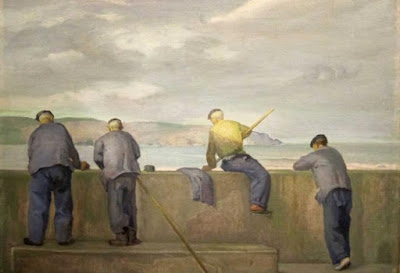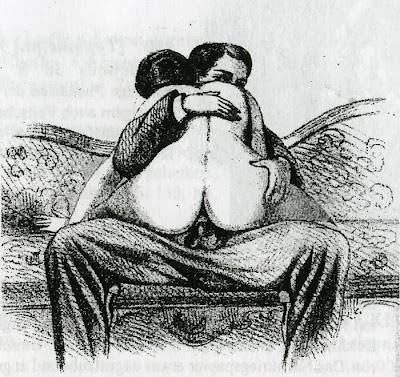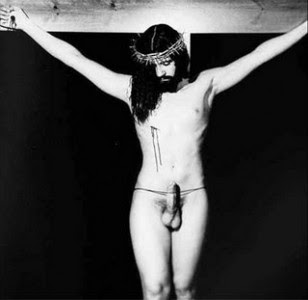Colores, olores, sabores y parásitos. Michel Serres.
RM: Usted ha llevado a cabo
recientemente un libro, Los cinco sentidos, que ha ganado el
premio Médicis en París. ¿Cuál fue su motivación en la escribir este
libro?
MS: Durante cincuenta años, la única pregunta ha
sido la cuestión del lenguaje, si uno pertenece a
la escuela alemana, la escuela anglo-americano o incluso el francés.
Todo lo que
escuchas cuenta es el lenguaje hablado o escrito. Y en Francia, Sartre produce palabras, escribe
Foucault Las palabras y las cosas, en que el lenguaje es el
tema principal. Recientemente, un libro ha llegado La llamada a cabo Gramática de objetos. En mis
hijitos día se les dio lecciones sobre los nombres de
las cosas: es como si sólo podemos sentir o percibir en
la medida en que poseemos idioma.
Mi libro es una reacción en contra de esta
teoría: se puede poner con claridad en tan sólo unas pocas palabras.
Nunca decimos 'el color del cielo' o "el
color de la sangre", o "el color del trigo", o "el color de ciruelas '.
Decimos "azul", "rojo", "amarillo", o
"violeta".
Entonces tenemos palabras para los colores y la
filosofía analítica no es el adecuado. Es posible, de hecho, que no podemos
percibir una variedad de azul para los cuales no tenemos un nombre. Pero se
vuelve más complicado con el sentido del olfato, y
he estado muy interesado en gusto y el olfato, como
un francés que le gusta el vino y que pueden apreciar el buen vino.
Usted sabe que la boca es un órgano lo cual es bastante
. . débiles.
.
mientras que el sentido del gusto es una órgano de gran riqueza.
En el libro señalo que nunca decir,
excepto 'el olor de una rosa ", o" el olor de una cosa
albaricoque ", o" el olor a.
. . '. Nos referimos a una cosa, pero hay sin nombre por
el olor. Y si lo que dijeron los analistas lingüísticos fuera cierto, no tendríamos narices, ya que no tenemos
nombres para las sensaciones proporcionadas por el sentido
del olfato. Existen no hay adjetivos
para ello. El sentido del olfato es del todo sin adjetivos. Si la filosofía analítica estaba en lo cierto, estaríamos condenado a estar sin este sentido. La escuela
lingüística es una escuela sin sentido del olfato y el gusto
no. Ahora, cuando refiriéndose a la humanidad, decimos homo
sapiens, como usted sabe. Pero las
personas que no saben latín no saben que sapiens
se refiere a degustación con la boca y la lengua - 'sapidity' proviene
de ahí. Por eso decimos que el homo sapiens para
referirse a nuestra especie, olvidando que esta
expresión se refiere principalmente a la cata con la boca, con un órgano. Los
orígenes de la idea son muy
importante.
RM: Eso es interesante: en la antigüedad, el hombre
se define como una
animal que ríe.
Pero usted dice. . .
MS: Sí, lo recuerdo: no, yo no digo que; Digo simplemente que cuando decimos que el homo sapiens, nos
hemos olvidado de que el origen de la noción de la
sabiduría, o del discurso - porque para nosotros
el hombre está hablando hombre - reside en la capacidad de probar con el
boca, y con el sentido del olfato. Para la mayoría de los filósofos esta sabiduría, esta sapiencia, reside en el lenguaje.
RM: Basándose en una observación anterior, lo que
se dice en el lenguaje del sentido del olfato, o
la falta de ella, explica quizás el lenguaje de vino y
de la apreciación del vino, en el sentido de que es un
lenguaje que se extrae de otras áreas; puede ser prácticamente incomprensible.
MS: Un capítulo de mi libro, que
se llama 'Tabla', está dedicado a la descripción
de un vaso de vino blanco, un Burdeos, el cual se llama Château d'Yquem. Doy
el año, y que vaya por encima del tipo de lenguaje
que se requiere si se va a dar una Descripción de este vino. Trato de describir la
sensación de con el fin de mostrar cómo el lenguaje
defectuoso es en el caso de este
sensación.
RM: Lo que equivale a decir que no es una capacidad
humana
el que no tiene un idioma.
MS: Esto es cierto del sentido del olfato, que es
un ejemplo Yo no, de hecho, doy en mi libro, pero
que a menudo me doy describir mi punto de vista: no
siempre tenemos el vocabulario de nuestras sensaciones. Elegí existe el
sentido del olfato, pero no hay otro ejemplo: las
variedades de color rosa que se distinguen por la
pintor Van Dyck en la cadera de Eva - el número de sombras
desafía el vocabulario disponible. El vocabulario es menos rico que
las variedades de color rosa utilizados por Van Dyck. Así que mi libro está dedicado a la defensa de lo cualitativo, lo empírico,
a la defensa de la falta de capacidad de reducción de lo
empírico a la lógica. Me
gustaría ir tan lejos como para decir que una forma de conocimiento se ha
perdido, una forma empírica, borrado por la
lingüística y prácticamente revolución algebraica.
RM: ¿Y hay otros desarrollos de esta idea? Por qué limitarlo a la sensación?
MS: Bueno, yo le llama el libro
'Los cinco sentidos', y discutir de Por supuesto, el
sexto sentido, esta sensación que tenemos de nuestro propio cuerpo;
hay todo un capítulo en el sentido de cuerpo. Este es un nuevo
libro para mí ya que tengo en el pasado ha preocupado por cuestiones científicas del tipo que estaban
discutiendo un momento. Hace, y el libro representa un
intento de reconstruir la filosofía en otro terreno. .
. otro
terreno, no el uno que hemos estado usando durante
el último medio siglo, y es que del lenguaje.
RM: Me he estado preguntando si hay una posible
metafísica la extensión de estas ideas: Estaba
pensando en Wittgenstein indecible, por ejemplo.
MS: Tal vez, pero la extensión
está en el subtítulo Los cinco sentidos.
También tiene el título "Filosofía de los órganos mixtos ': se trata de la
primera volumen, y después de esto voy a
hablar de varios otros problemas, pero no dentro de la categoría de lo
indecible. Es
una categoría que es muy fácil: no es nada más que
la otra cara de lo
decible. Voy a organizar el resto bajo
la partida de la idea de la mezcla, que es una noción que era estudiados por Platón en el Filebo, y luego
por los estoicos.
RM: ¿Podría explicar el significado de los
subtítulos: "Filosofía de los órganos mixtos '? Es la idea de mezcla, contacto. . .
MS: Es la idea de la mezcla de la que voy a tratar.
¿Qué ocurre cuando dos cuerpos están tan cerca que
no pueden ser
¿distinguido? Me trajeron a esta pregunta por la pregunta de la sensación. Debo decir, aunque sólo sea por la broma, lo divertido que parece que el hombre de la calle que un libro sobre la
sensación, y ahora hay docenas de ellos en Inglés
y francés, en caso tiene que empezar por el estado
de las diferentes reglas algebraicas. Nunca he
sentido la necesidad de estructuras algebraicas, a pesar de que esto ha sido mi campo, para degustar una copa de vino
blanco. Hay una especie de esquizofrenia aquí, lo que me parece ser a
la vez
ridícula y un poco trágica. En el mundo moderno, que debe ser
dijimos, en realidad estamos perdiendo nuestros sentidos.
RM:. Veo un pasaje de silencio en Los
cinco sentidos ¿Cuál es el la función de silencio?
MS: He mencionado silencio en el sentido común o
jardín, y Argumento que en nuestro mundo que ya no existe. Que ya no existe porque en los espacios abiertos del país o del mar, donde silencio reinaba una vez, los motores y los medios
de comunicación han llenado de
ruido. Tenemos que luchar contra el poder de ruido,
que es
inmensa y aterradora.
RM: Pero lo que a veces llamamos
silencio es en realidad un conjunto de ruidos que encontramos agradable o reconfortante, pero el
silencio es absoluto algo diferente.
. .
MS: A veces se encontró con un
silencio absoluto en mi juventud en el Sahara, o en alta
mar con cero viento y una calma total mar - que es el silencio en
relación con el ruido. Hay otro silencio el cual está en
relación con el lenguaje, y de nuevo no es una especie de la
meditación más allá del lenguaje. En la misma manera que la cuestión de la sensación hace un momento, es evidente por sí
mismo, sin tener que ser sostenido a cabo, que el
silencio es una condición previa de la filosofía reflexión. La filosofía
lingüística da a este en la medida que el
pensamiento, en esta perspectiva, es lo mismo que hablar. Pensando en mi opinión es, ante todo, estar en silencio. Es un
condición necesaria para la aparición de otra cosa. Asi que es cierto
que en mis libros, y en los que se han de seguir,
hay mucho en honor de silencio, en lugar de la palabra.
RM: Sí, en un lenguaje de sentido está hecha de
silencio. Tiene
que ser silencios entre palabras, entre sílabas. Es distinción,
o diferencia, lo que permite para el lenguaje. Pero tienes también en Los cinco
sentidos de un pasaje en el juego; la obra se encuentra en el cuerpo, y que parecen sugerir que no hay juego que es específicamente distinta del cuerpo, pero que no es
un tipo de
continuidad.
MS: Sí: me dijo antes de que hubo
varios pasajes en el libro sobre el sexto
sentido, la sensación del propio cuerpo, y de
hecho, pensé que me divierto al llevar a cabo una meditación a la manera de Descartes, pero fuera de todo lenguaje, y
sin ninguna referencia a un alma abstracta; era un virtual recuento del acontecimiento
del nacimiento. Yo era capaz de experimentar, en una más bien trágica circunstancia, y yo intento de sugerir
aquí, que el cuerpo lleva en sí un tipo de
centro, que se
podría llamar el tema. Es un análisis que tiene un significado
para la comprensión del cuerpo, creo.
RM: ¿Está relacionado el sujeto
al cuerpo: A menudo se dice que Plotino fue el
primero en formular la noción del sujeto: se
hace la pregunta "¿cuál es la verdad?", el hemeis, varios veces.
MS: Lo he dicho mucho sobre el
"nosotros" en un libro que entró antes
de los cinco sentidos y que se ocupa de Roma. Sus llamada Roma: El
Libro de las Fundaciones, y en ella se analiza el
primer libro de Tito Livio, y la manera en que la sociedad romana establecido. He
intentado hacer frente a este Pregunta: ¿Cuál es la
multiplicidad, lo que es lo fundamental característico de esta
multiplicidad que podemos llamar "nosotros"?
RM: En el mundo moderno en que a menudo hacen uso
de la noción de una el único y mismo individuo
aislado, separado de los demás - de hecho lo contrario de la
experiencia de la antigüedad.
MS: Sí, y de hecho es lo contrario de nuestra
propia experiencia como
bien. Está claro tan pronto como estamos en el
círculo de Hermes que esta visión metafísica de
individuos aislados atómicas es una abstracción que no tiene nada que
ver con la realidad.
RM: En su libro El parásito,
que ha aparecido en Inglés, Creo que usted plantea algunas de estas
cuestiones.
MS: Sí, yo estaba tratando de encontrar una
relación entre elementos, entre individuos, de un carácter casi atómica. La relación
entre dos personas, la relación padre / hijo, por ejemplo, Llamé a la relación de doble flecha, porque hay
dos postes. Pero la relación parasitaria es una más simple: se trata de
una sola flecha que va en una dirección pero no
en la otra, debido a que el parásito es una criatura que
se alimenta de otra, pero da nada a cambio. No hay ningún cambio, ningún balance para su presentación;
no hay reciprocidad en la relación, que es unidimensional.
RM: Y el parásito se hace más
grande con mayor rapidez que su huésped.
MS: Sí, hay una reciprocidad que
es difícil de entender: si el parásito come
demasiado, va a matar a su anfitrión, y va a morir por el de igual modo.
Y el término "parásito" tiene tres significados en
Francés, no dos como en Inglés. El parásito en francés es en primer lugar, alguien que come en la mesa de otro, sin estar invitado: eso es el parásito de la América y comedias
griegas. Luego está el sentido extraída de
parasitología, el parásito que incluso puede ser
un microbio, de la criatura una sola célula al insecto, y
que se alimenta de un huésped. El tercer significado,
que se utilizó en Inglés un poco al final del siglo XIX siglo, es el de la estática en la línea, es decir, el ruido
dentro de
comunicación. He tratado de encontrar la coherencia entre el biológica,
el sociológico y el significado físico de la parásito.
RM: ¿De verdad crees que hay algún hilo común entre
la ¿tres de ellos?
MS: Sí,
lo hay. Lo que me pareció de interés aquí era lo que llamo
el átomo de comunicación. El enlace simple entre
dos cosas es la relación parasitaria, y esta idea ofrece un análisis que es más profundo, más fundamental,
que el análisis actual de regalos, intercambio,
etc., que son siempre relaciones de equilibrio. Por el contrario, la
parasitaria relación es un uno
desequilibrado, en particular en el ámbito social
sentido: cuando un parásito es su huésped en el sentido social, hay a veces es algo a cambio de la relación, pero el
parásito siempre hace su regreso en palabras. Se le da comida, pero a
cambio que hace discursos finos. No es el comienzo de
un intercambio aquí, lo que le da su valor correcto lenguaje: el lenguaje es la moneda falsa con la que se paga por
la comida. Este es un tema muy interesante en la
comedia romana, y se puede decirnos algo
sobre el lenguaje y sobre la filosofía de
idioma ipso facto. Esto fue muy interesante para mí en ese momento porque era mi punto de entrada en la humanidad,
viniendo de las ciencias exactas, y fue fundamental
para estudiar la relación social, que considero
que es parasitaria.
Michel Serres
[ Agén, Fr., 1930 ]
Entrevista de Raoul
Mortley. Extracto.
[ 1991 ]
Publicada en: epublications.bond.edu.au/french_philosophers
También fue publicada en Argentina por:
Revista de Ensayo Negro, La Caja, dir. T. Abraham
Nro. 2 7 Dic / 1982. Buenos Aires, p. 28.
ARTE:
Antón van Dick
[ Bélgica, 1599 / Reino Unido, 1641 ]




